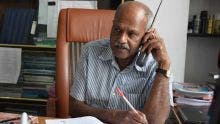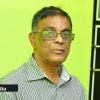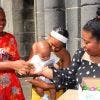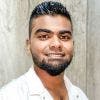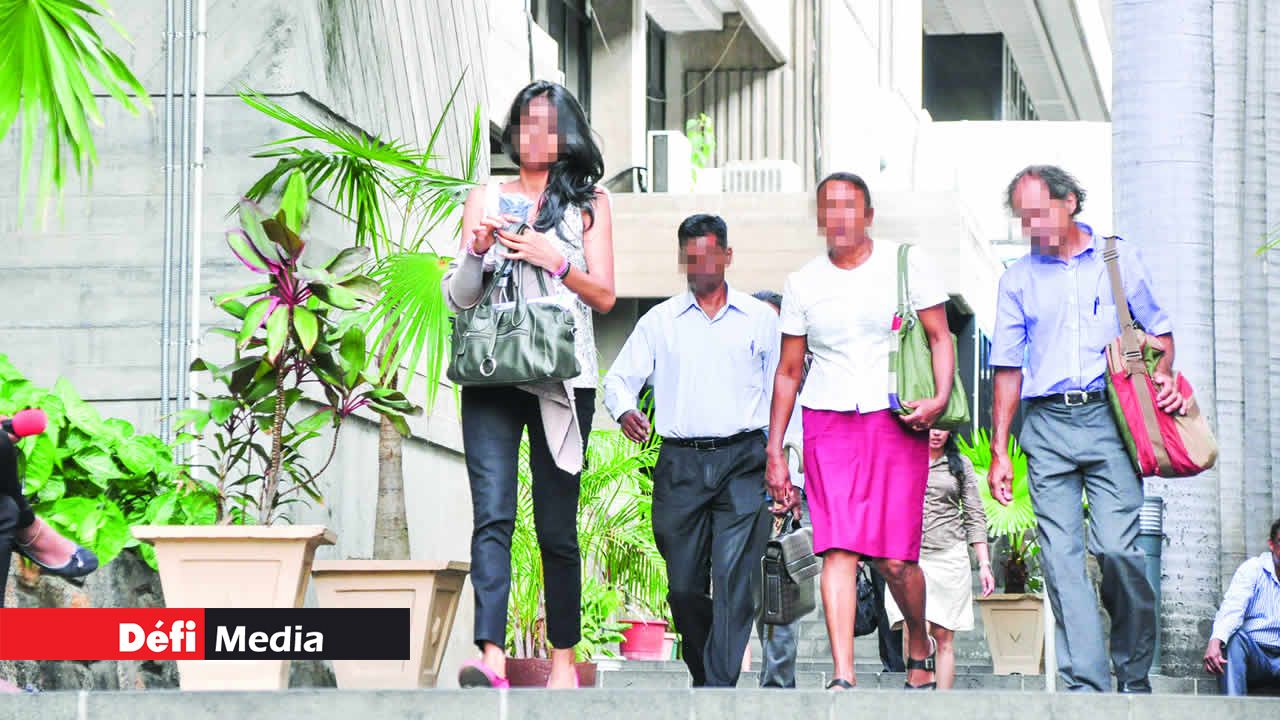
On 15th May, we will be celebrating International Family Day. The theme for this year is “Families and Inclusive Societies.” Mauritius, being a country blended with different cultures, religions and classes, ought to be a role model for other countries but still, we are striving to be a discrimination-free and inclusive Mauritius. Insight.
Publicité
There is no doubt that the Mauritian society has transformed greatly over the past decades. According to the anthropologist and sociologist Pavi Ramhota, the Mauritian society is a very complicated one. “This is because we are multicultural. Each group and community has its own moral, cultural and family values. Among these are people who are orthodox. For example, some are not in favour of the inclusion of women at various levels. Some women are not allowed to work, others are not allowed to have a social life, among others. People are also embedded in traditions in our country. So these reasons make it difficult for us to be an inclusive society,” explains Pavi Ramhota.

Pavi Ramhota
Secondly, the latter trusts that politics plays a major role in making our society an inclusive or non-inclusive one. “Many of us wonder why some people are not included in our society. The answer is politics. Everything is politics. Politics will tell you that this or that person cannot be included (because of various reasons such as his/her level of education, his/her background. Inclusivity in politics, in Mauritius, means favouritism and backing. A clear example is that some people are included, or not, according to their caste and their social class. It is a reality,” he utters.
Pavi Ramhota adds that politics also plays a major role in the inclusion of women in our society. “Some politicians are in favour of including the maximum of women in parliament or in politics. But how far can they really make this a reality? Again there are factors such as backing, social class and caste that will make some women more equal than the other. In addition to this, there are inequalities among women due to jealousy, gossiping and backbiting. This is also one of the reasons why there are hindrances for the inclusion of women in the world of work in addition to other inequalities such the preference for a male than a female due to facts like pregnancy and child care.” He adds that politics in Mauritius has also been a male matter. “Who are the ones doing politics, taking decisions and being the leaders? Again it is the man. Man decides who among the women will sit in parliament or not.”
At the family level, Pavi Ramhota states that Mauritius is still a patriarchal society. “There is what we call the invisibility of women’s work. That is the work done by the housewives is not a paid activity despite it being a 24hour and full time job. If that same woman would work in the house of another person, she will get paid. Women are considered to be the ones responsible for the family welfare and household care taker. In addition, when the man retires, he sits at home and relaxes while the woman will take care of him, still doing the cleaning and cooking. So where are the equality and the inclusive society?”
Regarding disabled people, the anthropologist and sociologist trusts that a lot is being done to include them in the world of work but in terms of infrastructure, we still have a long way to go. “There are now many courses and training given to disabled people. For example, there are courses in ‘Braille’ for those who are visually impaired. However, the disabled people are included in the world of work as far as they themselves are being able to work and take such responsibility. However in terms of infrastructure, we are lagging behind. At university level itself, infrastructures are not adapted to disabled people. We have only steps and stairs everywhere. It is also the same on our streets, in our buildings and others. This is why also disabled people have difficulties to have access to offices or to their place of work. Another example is access to our beaches, which is also not adapted to our disabled people. It is high time to review our infrastructures,” points out Pavi Ramhota.
Reaz Chuttoo : “Our laws and legislations promote exclusion instead of inclusion”
 According to the trade unionist, Mauritius is not at all an inclusive society. Why? “Logically speaking, our economic market is based on three aspects namely privatisation, liberalisation and deregulation. But when speaking about family and the inclusive society, we see that deregulation and these are in complete paradox. That is, it is the boss who decides when you will join the work, when you will stop the work, among others. This clearly indicates that we cannot have an inclusive society,” utters Reaz Chuttoo.
According to the trade unionist, Mauritius is not at all an inclusive society. Why? “Logically speaking, our economic market is based on three aspects namely privatisation, liberalisation and deregulation. But when speaking about family and the inclusive society, we see that deregulation and these are in complete paradox. That is, it is the boss who decides when you will join the work, when you will stop the work, among others. This clearly indicates that we cannot have an inclusive society,” utters Reaz Chuttoo.
Commenting on the 2018 theme of the International Family Day, the trade unionist explains that the Mauritian laws are impacting on both families and our society at large. “For example, people have to work overtime whenever their boss decides or not. They thus cannot have a stable life due to this, as they never know what tomorrow will be made of,” he utters.
Reaz Chuttoo adds that there is currently an unfair competition due to the coming and hiring of foreign workers in Mauritius. “Companies/businesses, among others, are hiring foreign workers while Mauritian workers are left jobless. These foreign workers are getting higher salaries and other advantages, but if the same competent Mauritian workers will do the same work he/she will not benefit from the same advantages.”
Regarding the youth and women, Reaz Chuttoo is categorical. “There is no opportunity given to our youth and women when it comes to work. Our Mauritian work field is not at all inclusive. For example, women and the youth cannot perform the work of security guards if it is based on a 12-hour shift. Any work which is based on a 12-hour shift will pose problems for women and the youth while 8-hour shifts are more suitable for them. Women have family constraints. Our laws and legislations themselves are not promoting inclusivity but exclusion.”
Inclusion of mentally and physically challenged individuals

Approximately 10% of the world's population or roughly 650 million people live with a disability. Narrowing it down to Mauritius, according to Census 2011 – Disability Analytical Report, one in 20 persons has a disability, that is, some 59,870 disabled persons. As citizens of humanity, the challenge that we are left with is: how can we integrate such a large proportion of the population who are often stigmatised?
The authorities have been taking considerable steps to help people with disabilities to integrate the community. Nonetheless, while things have improved, people with disabilities still face barriers and challenges when they are out and about.
Parimeeta Lutchumon, Director of the Northern Association for the Welfare of Disabled People, explains that integrating mentally and physically challenged individuals into society is indeed a challenging task, as it demands a lot of patience and compassion on the behalf of the school as well as the responsible parties. Additionally, she asserts that we should accept the sad truth that there are individuals whose handicaps can’t be cured or shall be bed-ridden for life. In such cases, inclusiveness is not an option but rather they need support from others. She further points out that the child finds it difficult to even retain or write basic things like his/her name, yet the ultimate aim is to rehabilitate them, teach them basic things such as writing their names, dressing themselves up, travelling independently in the public transport and sitting for their exams, which will in turn help them in their everyday lives and in their integration into the mainstream.
She claims that “the Government is doing its best in providing the students with monetary facilities, food facilities and pensions.” In her special day care centre, she has successfully trained three individuals to be independent and these people are now working as gardeners and fishermen. However, she points out that they have to be accompanied by someone even when they are working.
On the other hand, the Manager of Mille Soleil Association, Sandhya Sookraz, declares that language stands as a barrier for mentally and physically challenged individuals; they can’t juggle with French, English and Creole all at the same time. Her day care centre provides these kids with a positive environment and a support system whereby they can grow and express their creativity. Mille Soleil Association has integration programs with other schools and takes part in events such as Sports day, Independence Day, Mother’s Day & Music Day celebrations. She notes that at her day care centre, they are trying their best to offer a personalized service to the multi-handicapped person through a passionate, dedicated team of care-takers & an occupational therapist. She also acknowledges that it is challenging to include the beneficiaries into our fast paced world, yet she has a positive outlook and she firmly believes that it is not impossible to do so.
Rekha Sourjun, Head of School at Anou Grandi, is of the view that the education of mentally and physically challenged individuals is pivotal. At Anou Grandi, their aim is to train and educate the beneficiaries to consequently lead an independent life as well. When asked about what changes can be brought in order to enhance their lives, Rekha Sourjun states that firstly, we should eradicate mental barriers which at times may even come from parents. With the population thinking that people with disabilities are home-bound, and with people with disabilities themselves who think they cannot step out, therefore, a change in the mindset of people is required and in the way they perceive challenged individuals.
According to her, social barriers is another problem which hold people with disabilities back from stepping out and being seen and involved in activities in the community. Due to this shying away, others may see less of a need to cater to and include people with disabilities. Secondly, she believes that as the world is evolving, modern technology can be of great use in helping challenged individuals, yet the means of providing these equipments, gadgets in day care centres remain highly expensive and the modus operandi undetermined.
Dr Michael Atchia : “Special needs children are not catered for properly”
 Dr Michael Atchia explains that Mauritius is the only state out of 53 states of Africa to have free and compulsory education from five to 16 years. “We are a fully inclusive society regarding education. In several international forums, I have often cited this fact as the major achievement of Mauritius, above all else. Since good education, accessible to all, prepares people for the next 50 years!”
Dr Michael Atchia explains that Mauritius is the only state out of 53 states of Africa to have free and compulsory education from five to 16 years. “We are a fully inclusive society regarding education. In several international forums, I have often cited this fact as the major achievement of Mauritius, above all else. Since good education, accessible to all, prepares people for the next 50 years!”
Michael Atchia further argues that in the past, we had those who could not afford the fees for paying secondary school.” He adds that “even today, there is certainly no equality of opportunity between those who can and those who can’t afford informal education through a laptop, access to internet and the web, going to exhibitions, travelling outside a tiny, isolated country like Mauritius, etc. Many children with special education needs are not catered for properly, mainly due to insufficient funds within the free education structure. Think of those children with physical or mental handicap, those too slow for regular classes, those with very special intelligence and gifts which are often ridiculed as being out-of-the-box, unrecognised, marginalising the holders.”
Commenting on the tertiary education, he claims that “in tertiary education, a big difference still exists between the best universities and the many substandard institutions which offer knowledge for knowledge sake, poorly oriented towards career and life needs. So those without a family or a family-life are at a great disadvantage. This is the case in Mauritius for quite a few, including orphans where one parent is deceased or a child who has a parent in jail. Or those (up to 30% of the population in several African states) who have no access to schools. All our children have access to good schools. Thank God for this blessing on our society.”

Notre service WhatsApp. Vous êtes témoins d`un événement d`actualité ou d`une scène insolite? Envoyez-nous vos photos ou vidéos sur le 5 259 82 00 !














